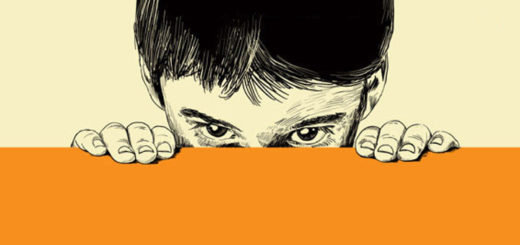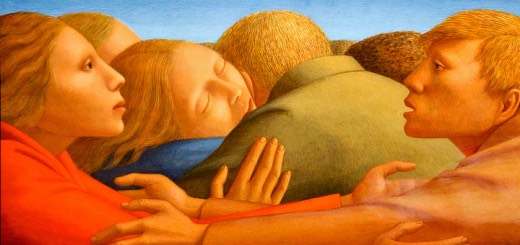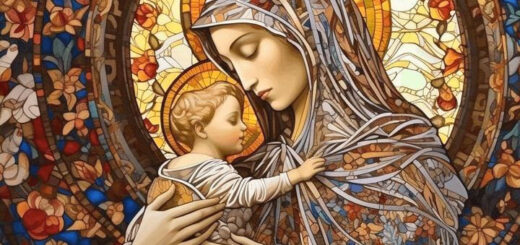"We cannot tell the grandparents that their granddaughter is gay, he would kill them!"
Text by Mary Ellen and Casimer Lopata taken from their book Fortune Families: Catholic Families with Lesbian Daughters and Gay Sons (Fortunate families: Catholic families with lesbian daughters and gay children), Trafford Publishing, 2003, Chapter 5, pp.42-45, free translation by Diana
"We cannot tell the grandparents, he would kill them! ". The spouses say it, but also the gay children and their straight brothers/sisters say this of their grandparents. Parents have often repeated him also in the meetings of the Association of Parents with LGBT children. But where does this stereotype come about uninformed grandparents, unable to understand things, physically weak and emotionally unprepared?
Based on my experience, most grandparents are in contact with the world. They watch TV, they go to the cinema, read the newspapers, the magazines, of the books. Many of them, even if retired, lead an active life or volunteer. They are intelligent human beings and know what happens in the world. Do they have their blind points? Of course, they have prejudices like everyone else. But ignorance and prejudice are not an inevitable part of the aging process, they are not characteristics of advanced age. But, simply for having lived longer and having endured more conflicts and losses, they can instead have a better vision of what is really important in life.
Since but the investigation of Catholic parents with LGBT children did not investigate the feelings of the grandparents, in this case I have to rely on my experience. My father, the maternal grandfather of my son Jim, with age he sweetens himself. He had always had a conservative, authoritarian mentality with well -defined feelings and opinions on most topics. I was not in a hurry to face this topic with him.
He lived in Oregon (United States) thousands of miles away and had never been particularly interested in my life after my wedding. We were not foreign, we simply hadn't very common and we were too taken from our lives. We stayed in contact with letters and phone calls, maybe we saw each other every two years. I kept my father of the growth of my children and their leaving the house to go to college and the beginning of their new life. I rarely entered detail.
However, in the autumn of 1992 the state of Oregon made a referendum proposal that, if he had passed, would have forbidden the counties of that state to promulgate the laws of protection of civil rights for gay and lesbians. This was the reason why I said to my father that his granddaughter was gay. I could not let my father vote without knowing that his vote could, in one way or another, hit thousands of men and women as his nephew. So in early October 1992 I wrote a long letter to my father telling him that Jim was gay.
The weeks passed and there was no answer, so the previous weekend the elections I called him and asked him if he had received my letter and if he had questions. He said he received it and that he would have asked Jim directly to ask him any questions. I said it was fine and that I was sure that Jim would be happy to talk to him. Then in a agitated voice he said: "I only know one thing. They were not born like this". His tone of voice sent a clear message, that he was so wrong, that it was not a good thing. I don't think he understood the contempt inherent in his statement.
Perhaps he despised me for not being a good mother, for having raised a son who had "chosen" to be homosexual. I thought I was prepared for a negative answer, but I felt my anger grow and I felt out of my mouth, close teeth and in the most calm way possible: “Dad you are on a mined ground". I then heard my voice on the phone say: “We love Jim". Here is everything I remember about that conversation. I don't know what my father then voted. I never asked him. We didn't talk more about the fact that Jim was gay. My father died in 1994.
Instead Jim's paternal grandparents are a completely different story. They lived several miles away, but it was close enough to be able to visit their grandchildren often while they grew. But the distance made it easier not to communicate Jim's "news". At the beginning Jim was not ready to tell him, but then over time he became easier to drop it.
What was to earn by saying it, we thought. It wouldn't have been nice. We would have only given him one more reason for concern. And this strategy worked quite well until my husband Casey and I was involved in the family ministry for homosexual Catholics of our diocese. He became so difficult to explain to him why we were so busy with the "volunteering", without telling him what our work consisted of. In the end, keeping the secret became more difficult than telling the truth, so we talked to Jim to say it too. At the time I imagine that Jim had enough confidence in us to ask us to do the honors of the house.
Before telling my husband Casey's parents, my children and I discussed if they already didn't know. I know how parents can use refusal as an effective means to avoid dealing with a situation that would like to disappear, and we suspected that grandparents had the same ease in using this technique.
Let me illustrate the Jim degree thesis project, which took the form of a comedy written and direct. The work was entitled David and Jonathan, he talked about a college student who made the coming out to his parents. Jim described an imaginary family, but we had moments of unease - even comedians - when we sat in the theater and we understood what, and of those who spoke that comedy. All the time we hoped that the public would consider everything a fiction. Jim's grandparents joined us to one of the representations, we thought this was a particularly painful way to face the question and talk about Jim.
We really imagined that we didn't have to say it, that they would understand it from the comedy as soon as they had seen it. I remember having talked to our daughter immediately after the representation, asking him whether or not they understood it. His ironic response was: "I don't think mom. I just spoke with grandmother and asked me if the director's assistant is Jim's girl."(If only he had known! The director's assistant, a good friend of Jim, was instead lesbian). In the end we lost the courage and we all stayed silent.
When we finally told him, it wasn't a big problem. The grandmother asked few questions, sometimes she had questions caused more by something she had heard or read on the topic. The grandfather remained silent, although suspected that many of his grandmother's questions came to him.
A few years after telling him, we kept a long family meeting. There were Casey's mom and dad with her brother, together with our children with their spouses and the "special friends" that Jim had brought, in addition to Ed, a good friend of hers for several years. At the end of the week, while we exchanged kisses and hugs to greet us, I witnessed a scene that will always remain in my heart. The grandfather, directly, gave his hand to and he said: "And now take care of Jim."
If we hadn't told my husband Casey's parents, I wouldn't have this memory. Jim would not know the fullness of the confirmation of love and perhaps, even more important, the grandparents would not have had the opportunity to love Jim in such a full way.
Conclusion
"Fortunate families" - Moms and Dad, brothers and sisters, grandparents, uncles and aunts and cousins - they do not exist in silence and secret. They share the truth of who they are and, like the brothers and sisters of Jim and their grandparents, each member of the family makes his journey to understanding.
The love of Dan, Linda and Andy for their brother Jim, who is gay, will modulate a love and understanding in their children who, over time, will change the world. For our part, my husband Casey and I hope that what we do - not for Jim, but thanks to Jim - he will help make a difference. In our thoughts there is always the idea that what we do now, will make life a little simpler to that nephew who will discover in the future that he is gay or lesbian. Love, support and understanding of all our children are just another piece that makes ours a lucky family.






